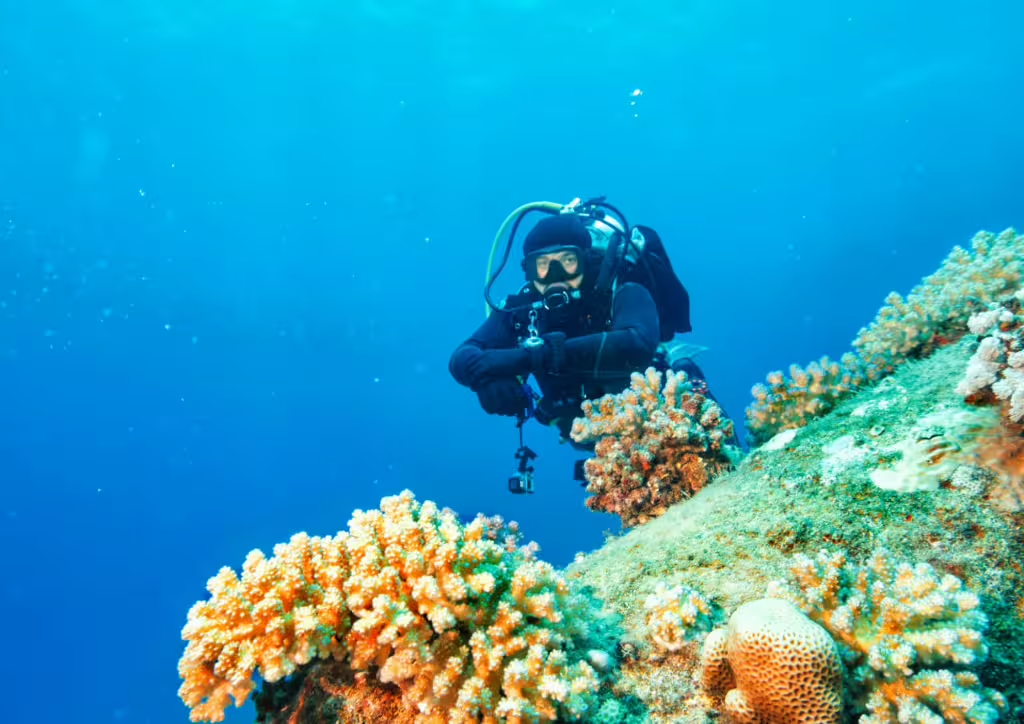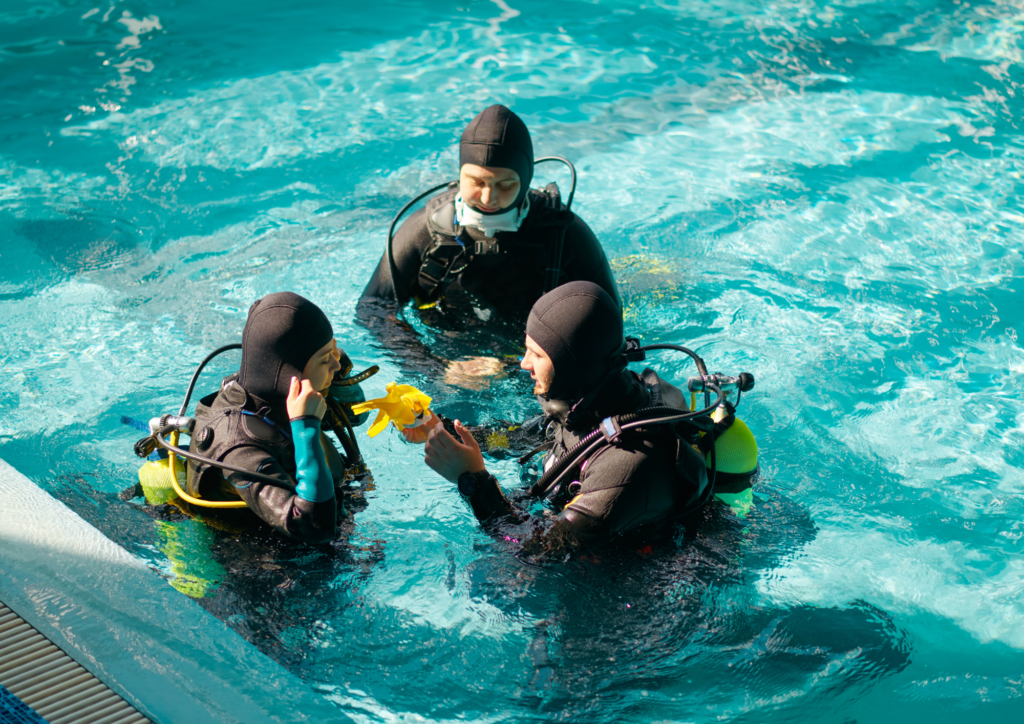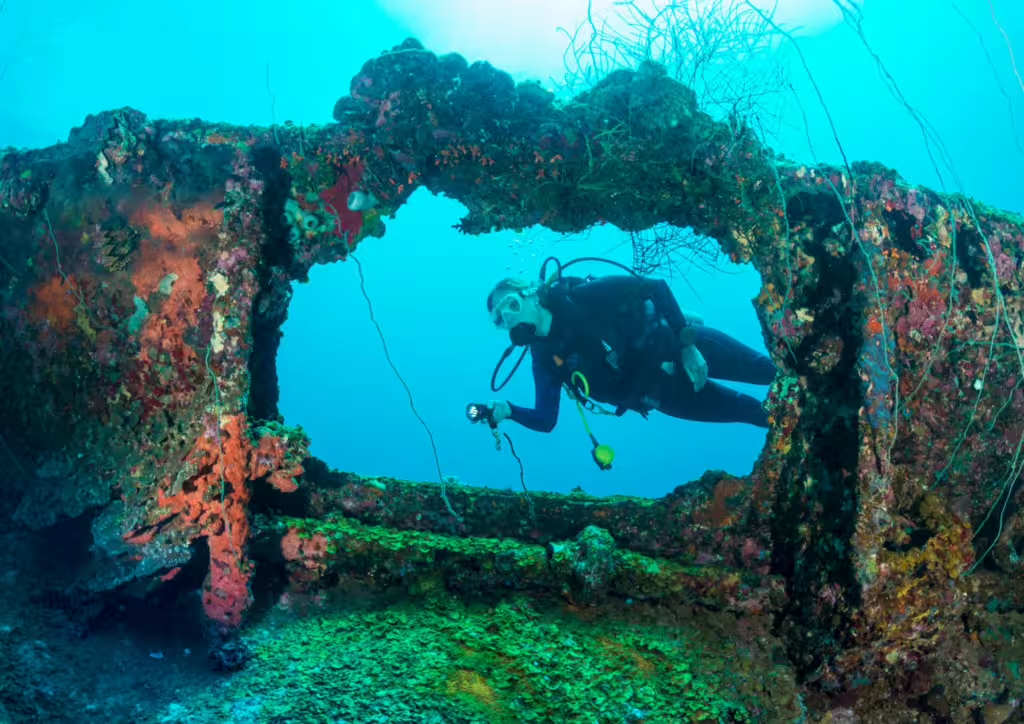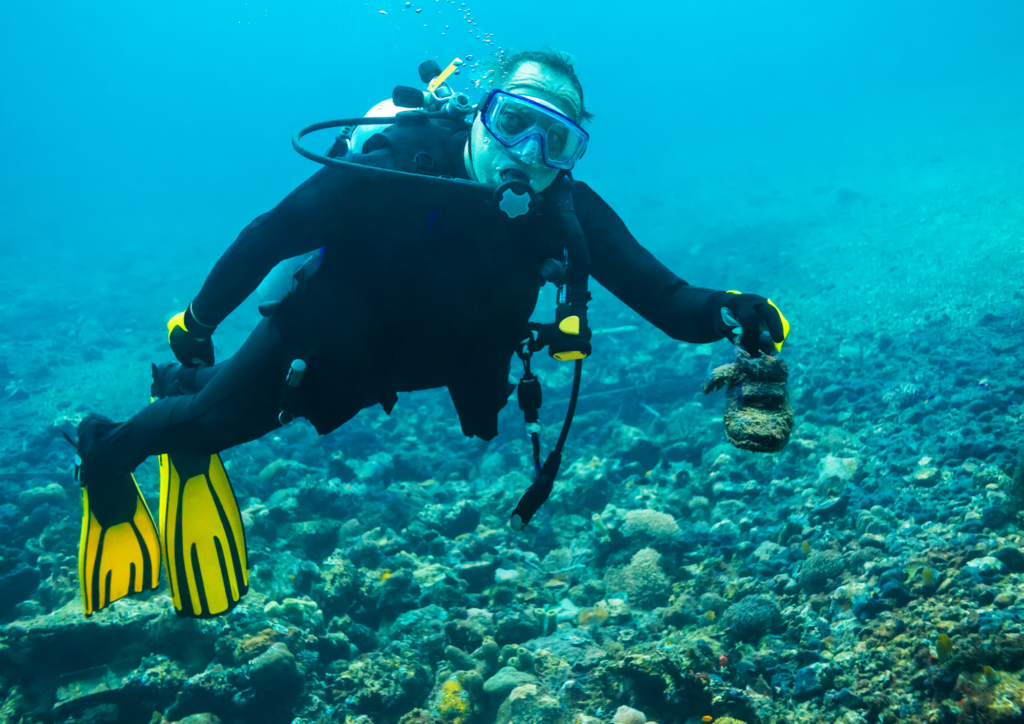Starting your Bali Diving Course is an exciting first step into the underwater world of colorful reefs, vibrant marine life, and crystal-clear waters. For many beginners, a Bali Diving Course can feel intimidating at first, but with the right guidance, it quickly becomes an unforgettable adventure. In this guide, we’ll walk you through what to expect from a Bali Diving Course, including choosing the right program, understanding essential gear, and learning safety basics. With expert tips, a Bali Diving Course will help transform you from a curious beginner into a confident diver ready to explore Bali’s breathtaking marine landscapes.
Understanding Bali Diving Courses: What to Expect
A Bali Diving Course offers the perfect introduction to the underwater world, especially for beginners eager to explore vibrant reefs and marine life. Many dive schools in Bali provide PADI (Professional Association of Diving Instructors) certifications, recognized worldwide for their quality and professionalism. Typically, a Bali Diving Course such as the PADI Open Water Diver spans three to four days, covering classroom lessons, confined water training, and open water dives.
During a Bali Diving Course, participants develop essential skills like buoyancy control, underwater navigation, and safe diving practices, all within a welcoming and supportive environment. Most courses require students to be at least 10 years old, able to swim, and to complete a medical questionnaire for safety purposes.
Choosing a Bali Diving Course not only equips you with practical and theoretical scuba knowledge but also provides the confidence to explore Bali’s breathtaking coral reefs and diverse marine life. It’s an exciting, enriching journey that turns beginners into confident underwater explorers.
Requirements for Beginners: Are You Ready to Dive?

Before starting your Bali Diving Course, it’s important to understand the prerequisites. Most dive schools require a minimum age of 10–12 years, with junior programs available for younger participants. Good health is also essential, and certain medical conditions like asthma or heart issues may require a doctor’s approval before joining a Bali Diving Course.
The good news is that prior scuba experience isn’t necessary—just basic swimming skills and a willingness to learn. By meeting these requirements, you’ll be fully prepared to get the most out of your Bali Diving Course while staying safe in the water.
Awareness of age restrictions, health considerations, and safety guidelines ensures a smooth and enjoyable journey. A Bali Diving Course is not just about training—it’s about building confidence, mastering new skills, and discovering Bali’s stunning underwater world with peace of mind.
Choosing the Right Dive School: Factors to Consider
Choosing the right dive school in Bali is crucial for beginners embarking on their underwater adventure. When evaluating options, consider the teaching style of the instructors—some may focus on a hands-on approach, while others might emphasize theoretical knowledge. It’s important to choose a style that resonates with your learning preference. Equally essential are instructor qualifications; ensure that they are certified through reputable organizations, which guarantees they possess the necessary skills and experience to provide safe and effective training.
An understanding of more personal aspects, like how instructors communicate and engage with students, can also influence your learning experience significantly. Safety records should be a top priority when selecting a dive school. Dive schools that prioritize safety will have established protocols and consistently maintain their equipment. Checking student reviews can provide valuable insights into the experiences of others and help you gauge the school’s reputation.
Look for patterns in feedback to identify any recurring issues or highlights about particular schools. Armed with this information, you can make a more informed choice, ensuring that your Bali diving course not only meets your expectations but also lays a solid foundation for your journey into the depths of the ocean.
Your First Steps: Preparing for the Course

Embarking on your Bali diving course is an exciting journey, but preparation is key to maximizing your experience and minimizing anxiety. Before you dive in, make sure to gather essential gear, including a well-fitting wetsuit, mask, fins, and a snorkel. Don’t forget to bring essential documents such as your identification, medical clearance if needed, and any necessary diving certifications.
Health and safety should always be a priority, so researching the dive school’s requirements and recommendations will help ensure you’re well-equipped and ready to go. A checklist can be an invaluable tool, helping you organize everything you need for your initial sessions in the water. In addition to gearing up, consider engaging in some pre-course training to familiarize yourself with basic diving skills and theory.
Many schools provide online courses or resources that can help you understand diving principles before you arrive. Attend introductory classes to build your confidence and ease any apprehension. Practicing relaxation techniques, like deep breathing, can also be beneficial as you approach your first dive. The more comfortable you feel before stepping into the ocean, the more enjoyable your diving experience in Bali will be. Overall, thorough preparation ensures that you not only enjoy your dives but also establish a strong foundation for safe and thrilling underwater adventures.
What Happens During the Course: A Day in the Life of a Beginner Diver
A typical day in a Bali diving course for beginners is an exciting blend of educational instruction and hands-on experience. Mornings often start with a classroom session where trainees learn about diving principles, safety protocols, and marine environment awareness. Instructors present various topics, such as equipment usage and the importance of buoyancy control.
This foundational knowledge is crucial, as it not only prepares beginners for their first dive but also calms any nerves by demystifying the process. After informative sessions, students are usually given time to practice handling scuba gear, ensuring they feel comfortable and confident before hitting the water. In the afternoons, beginners transition to the practical aspect of their training, heading to the stunning waters of Bali for their first actual dive.
Under the careful supervision of experienced instructors, they practice essential skills like equalization, descending, and ascending, all while exploring vibrant coral reefs. The combination of learning and adventure fosters a sense of camaraderie among classmates, making the experience even more memorable. By the end of the day, aspiring divers leave with not only newfound knowledge but also the exhilaration of having taken their first steps into an enchanting underwater world.
Safety First: Diving Best Practices and Guidelines

When embarking on a Bali diving course, understanding and adhering to safety protocols is paramount to ensure an enjoyable and secure underwater experience. Beginners should familiarize themselves with essential safety guidelines like checking equipment thoroughly before each dive, monitoring air supply levels, and maintaining proper buoyancy at all times. It’s also crucial to dive with a buddy.
This practice not only enhances safety but also offers companionship and shared experiences, allowing for better communication in emergencies. Additionally, beginners should stay within their training limits and avoid diving in adverse conditions until they gain more experience. Following these practices can significantly boost a diver’s confidence and enjoyment while exploring Bali’s vibrant marine life. Moreover, proactive safety measures include attending pre-dive briefings conducted by certified instructors, who provide invaluable insights into localized hazards and diving currents.
Another important aspect to consider is the importance of equalizing pressure to prevent ear injuries, as this is commonly encountered by novice divers. Staying well-informed about these diving best practices will enable beginners to focus on the beauty of their underwater surroundings, making their first experience in Bali not just safe but truly unforgettable.
Embarking on Your Bali Diving Adventure: Taking the Plunge
As we wrap up this exploration of what to expect from a Bali diving course, it’s clear that embarking on this underwater adventure is not just about learning to dive; it’s about embracing a whole new world filled with breathtaking marine life and unforgettable experiences. The transition from expectations to the first steps is a journey worth taking, and by understanding the key elements—such as equipment, training, and local marine ecosystems—you can prepare yourself for a fulfilling and safe dive experience.
Bali provides the perfect backdrop to nurture your diving aspirations, whether it’s your first time or you’re looking to sharpen your skills further. In conclusion, the joy of scuba diving lies in the freedom it offers and the incredible sights it unveils beneath the surface. By preparing adequately and choosing the right course to suit your needs, you step into an adventure that promises to expand your horizons, both above and below the water. So, take the leap and dive into Bali’s stunning aquatic landscapes—your underwater journey awaits!

